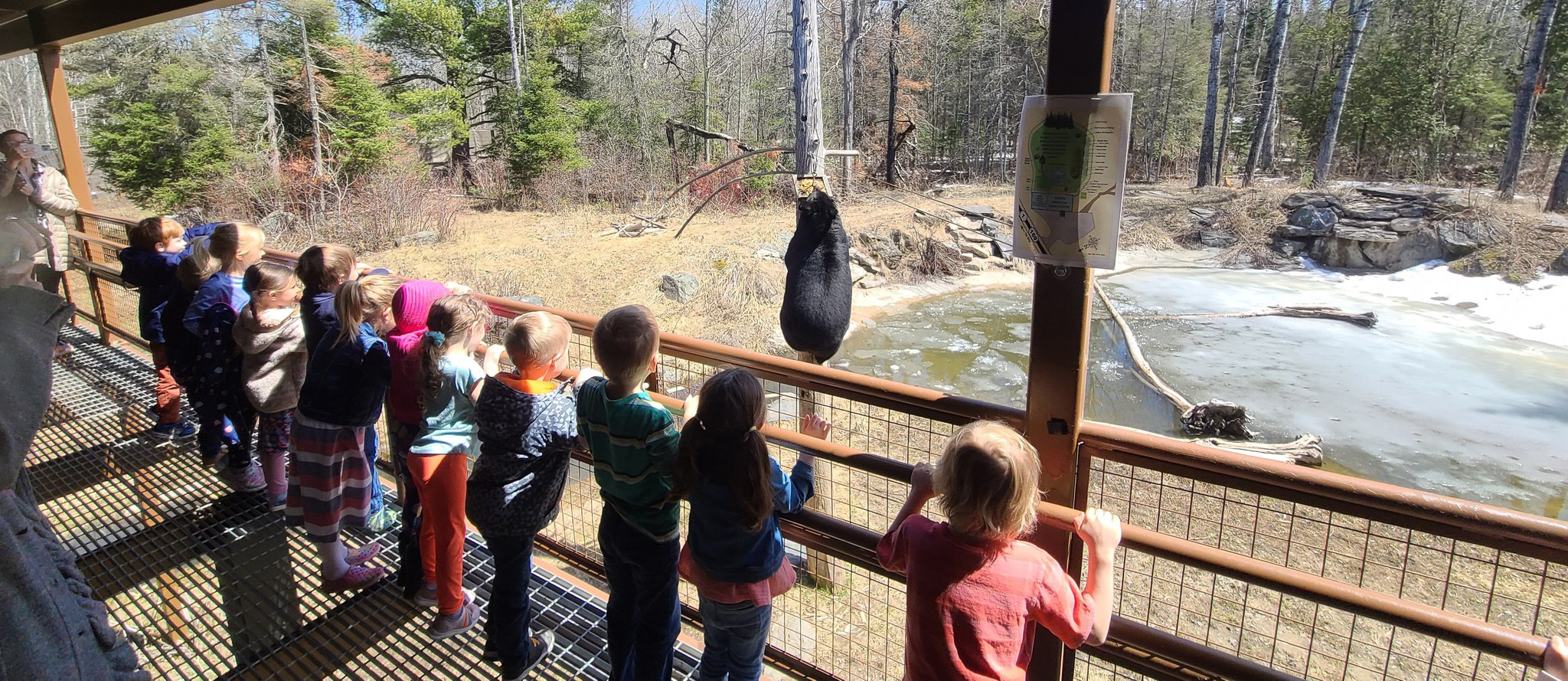

Sociable Sounds
In the wild, bears make a plaintive sound when they want to make friendly contact, take food from a bear they know, or nurse.
Mothers grunt when they approach their cubs, are concerned about them, or want them to come down from trees. When a mother returns from foraging, she looks up the tree where she left her cubs and grunts. Although cubs immediately come down in popular literature, cubs in nature have minds of their own about that. When the cubs do not come down, the mother may become agitated and give double and triple grunts, perhaps feeling a need to nurse or move to a new spot. If the cubs do not come down, she may climb up and carry one down.
Tongue-clicking usually is done when a bear approaches another bear to make friendly contact, which may include play or mating. In that context, bears also make pleasant grunts that are higher in pitch than grunts to cubs. Ted, the adult male black bear in the Bear Center pen, makes these pleasant grunts and tongue-clicks to people. If a person lets him, he then shows his friendly intentions by licking the person’s mouth and gently mouthing the person’s face or head.
Cubs make a motor-like hum when they nurse and occasionally when they are just comfortable and secure. Older bears sometimes make this sound in a deeper voice while eating a big piece of food (like a piece of warm fat) that they can suck or lick. Researchers observed a 3-year-old female make this sound while she was in REM sleep.
There is much to be learned about the meanings and variety of bear vocalizations.
We are a 501(c)(3) non-profit that relies entirely on the support of visitors, merchandise sales and people like you. We do not receive any state or federal funding.
Help support our mission.
Donate Now